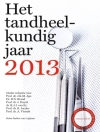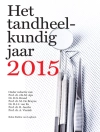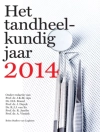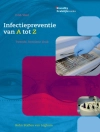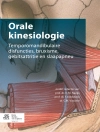The deepest understanding of the cells of the oral system will be found in decoding their communication and seeing how it is regulated. Once we have understood their language, clinicians might be able to talk to cells and control their action.
This book by 47 world-renowned experts – for each chapter at least one clinician and one basic scientist – highlights a reliable and actual state of research regarding this topic that quickly moves forward. Beyond the classic cell types addressed in the first part of the book, organ systems or model systems of cell-to-cell communication of a more generic type are presented in four additional chapters in the second part. A special feature are the colored scanning electron microscopic (SEM) images, created to eloquently illustrate and explain the function of the depicted cell types.
This book – accompanied by an augmented reality (AR) app that allows you to experience the process of bone resorption virtually – should help to open the vision of how we can regenerate tissues and heal diseases by controlling the language of the cells, and shows us the direction in which research and therapy will go in the future.
Зміст
Part 1: Cell Atlas of the Oral System ‘A to Z’
Ameloblasts (R. J. Miron, A. Lussi)
B-Cells / T-Cells (J. E. Konkel, I. L. C. Chapple)
Cementoblasts & Cementocytes (B. L. Foster, M. Sanz)
Chondrocytes and Fibrochondrocytes (D. S. Nedrelow, M. S. Detamore, M. E. Wong)
Dental Stem Cells: Developmental Aspects (J. Krivanek, K. Fried)
Epithelial Cells (V.-J. Uitto, U. K. Gürsoy)
Fibroblasts (G. Pompermaier Garlet, D. S. Thoma)
Macrophages (J. CW. Wang, W. V. Giannobile)
Microvascular Cells: Endothelium and Pericytes (A. Banfi, S. Kühl)
Myocytes (S. W. Herring, S. Kiliaridis)
Nerve Cells (S. B. Oh, P. R. Lee, D. A. Ettlin)
Odontoblasts (D. D. Bosshardt, P. R. Schmidlin)
Osteoblasts (F. E. Weber, B. Lethaus)
Osteoclasts / Odontoclasts (R. Nishimura, H. Terheyden)
Osteocytes (R. Gruber, B. Stadlinger)
Polymorphonuclear Cells (Neutrophils) (J. Deschner, S. Jepsen)
Salivary Acinar Cells (G. B. Procter, A. Vissink)
Part 2: Cellular Interactions―Insights and Outlooks
Mesenchymal Stromal Cells: Therapeutic Aspects (Q. Vallmajo-Martin, J. S. Marschall, E. Avilla-Royo, M. Ehrbar)
Model Systems for Investigation of Cell-to-Cell Communication (P. Korn, M. Gelinsky)
Linking Molecular Function with Tissue Structure in the Oral Cavity (C. Porcheri, C. T. Meisel, T. A. Mitsiades)
Oral Microbiota, Biofilms and Their Environment (N. Bostanci, G. N. Belibasakis)
Про автора
Reinhard Gruber ist promovierter Biotechnologe und seit 1999 an der Universitätszahnklinik der Medizinischen Universität Wien tätig. Er war Vizedirektor des Curriculums für Zahnmedizin und gründete das Doktoratsprogramm ‘Knochen- und Gelenkregeneration’. Als Gastwissenschaftler war er am Bone Tissue Engineering Center der Carnegie Mellon University in Pittsburgh und an der Dental School der University of Michigan aktiv. Von 2012 bis 2014 leitete Reinhard Gruber das Labor für Orale Zellbiologie an den Zahnmedizinischen Kliniken der Universität Bern zu der er noch eine Zugehörigkeit besitzt. Im Oktober 2014 wurde er als Professor für Orale Biologie an die Medizinische Universität Wien berufen. Reinhard Gruber ist Stiftungsrat der Osteology Foundation, Mitglied im ITI Research Committee und wissenschaftlicher Beirat der Österreichischen Gesellschaft für Knochen- und Mineralstoffwechsel. Von 2008 bis 2015 war er Chefredakteur des International Journal of Stomatologie & Occlusion Medicine und der Zeitschrift für Stomatologie der Österreichischen Gesellschaft für Zahn-, Mund- und Kieferheilkunde. Derzeit ist er Assoziierter Editor der Zeitschriften Clinical Oral Implants Research und International Journal of Oral & Maxillofacial Implants sowie Mitglied in mehreren Redaktionsgremien, darunter im Journal of Dental Research, Periodontology 2000 und im Clinical Oral Investigations. Reinhard Gruber und sein Team haben bisher über 250 Originalartikel und Reviews in internationalen Journalen sowie zahlreiche Buchbeiträge im Bereich der regenerativen Zahnmedizin veröffentlicht.


